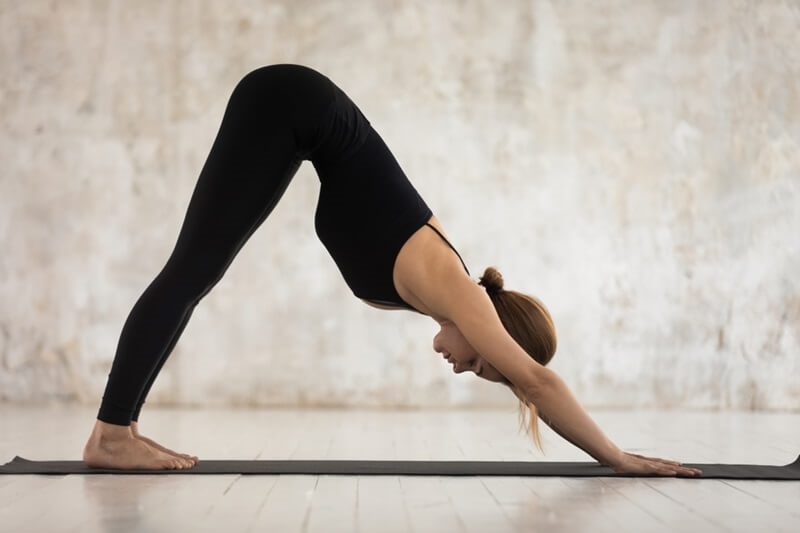
Let’s cut the fluff. If you’re still associating aerobic exercise with nothing more than burning calories, it’s time for a mindset shift. Because while your abs might benefit, your brain is the real MVP here. From memory boosts to razor-sharp focus, aerobic exercise for brain health is the low-cost, high-reward tool most people are still underestimating.
If it makes your heart rate climb and your breathing pick up—without totally wiping you out in 30 seconds—it’s probably aerobic. Think:
Basically, any activity you can sustain for more than a few minutes that keeps oxygen flowing and your heart working qualifies.
Now, is yoga aerobic activity? Short answer: Not usually. Unless you’re doing power yoga or nonstop vinyasa flows that make you sweat buckets, most yoga styles focus on flexibility, balance, and breath—not cardio. Great for your mental health? Absolutely. But don’t expect it to replace your cardio sessions.

Aerobic exercise increases blood flow to the brain and stimulates the release of brain-derived neurotrophic factor (BDNF)—a protein that literally helps neurons grow and connect better. Translation? Better memory, faster thinking, and improved learning. Studies show that consistent aerobic exercise for brain health increases gray matter in areas linked to executive function and memory.
You know that brain haze that makes even basic tasks feel exhausting? Aerobic exercise clears it out. Regular cardio improves your brain’s ability to process information, filter distractions, and stay on task longer. It’s like giving your attention span a power upgrade.
We’re all aging. But how fast your brain ages? That’s negotiable. Aerobic exercise slows down the brain shrinkage that naturally comes with age—especially in areas responsible for memory and decision-making. It’s one of the most effective, drug-free ways to delay dementia.
Aerobic workouts trigger the release of feel-good chemicals—dopamine, serotonin, and endorphins. So, not only do you think better, but you also feel better. This is why doctors are starting to treat depression and anxiety with sweat instead of pills.
And let’s not forget sleep. People who engage in regular aerobic activity report better quality sleep and improved sleep cycles. Why does that matter? Because quality rest is non-negotiable for memory consolidation and cognitive performance. You're not just giving your brain energy; you're giving it recovery time.
Discover More: Your First Steps to Fun Zumba Cardio Workouts at Home
Forget the stereotype that water aerobics is just for retirees. The benefits of water aerobics exercises are legit—especially for your brain. Working out in water reduces joint strain while keeping your heart rate up, making it perfect for people recovering from injuries or anyone needing a low-impact option.
And yes, it checks the aerobic box. You’re getting cardiovascular benefits while also improving coordination and muscle endurance—both crucial for cognitive sharpness. Bonus: the resistance from water forces your brain to adapt to constant, subtle shifts, which means even more mental engagement.
Another overlooked perk? The calming effect of water can reduce cortisol levels, helping you de-stress while staying fit. That’s a double win for your mental state.
If you thought step aerobics died with 90s workout VHS tapes, think again. This rhythmic, up-tempo cardio workout is making a comeback—and not just for physical conditioning.
The benefits of step aerobics exercise go beyond calorie burn. It requires real-time coordination, pattern recognition, and balance—all of which activate multiple brain regions at once. Translation: You’re not just getting fitter. You’re training your brain to react faster, think quicker, and remember better.
Plus, the tempo-based nature of step aerobics challenges your short-term memory and reaction time. You have to anticipate the next move and stay in sync, which keeps your brain firing on all cylinders.
Forget extremes. You don’t need to be a marathon runner to see benefits. Research shows that 150 minutes of moderate aerobic exercise per week—like 30 minutes a day, five days a week—is the sweet spot for both body and brain gains.
And if that sounds like a lot? Break it up. Three 10-minute sessions a day still count. The point is consistency over intensity.
Need proof it works? One long-term study found that adults over 60 who did regular aerobic exercise scored higher on memory tests and had more brain volume than their sedentary peers. You’re literally growing brain mass with every sweat session.
Here’s what a brain-boosting week might look like:
Monday: 30-minute brisk walk + 15-min core stretch
Tuesday: 45-minute water aerobics class
Wednesday: 30-minute step aerobics routine
Thursday: Power yoga (make it sweat-worthy)
Friday: 20-minute bike ride + 10-min balance drills
Saturday: Swim or dance session
Sunday: Rest or light walk to recover
Every activity above qualifies as aerobic exercise for brain health—especially when done with effort and intention.
Don’t Miss: Overcome Aerobic Plateau: Fitness Tips from Experts
Aerobic exercise for brain health isn’t a trend—it’s neuroscience in motion. Every time you lace up your shoes or step into a pool, you’re not just getting fitter. You’re making your brain sharper, your mood lighter, and your memory stronger.
So no, yoga isn’t always aerobic, but that doesn’t make it useless. Just don’t let it be your only plan. Rotate in water aerobics or revive that step aerobics routine you forgot about. Your brain craves variety, oxygen, and challenge—and cardio delivers all three.
Now get moving. Your focus and memory are waiting.
This content was created by AI